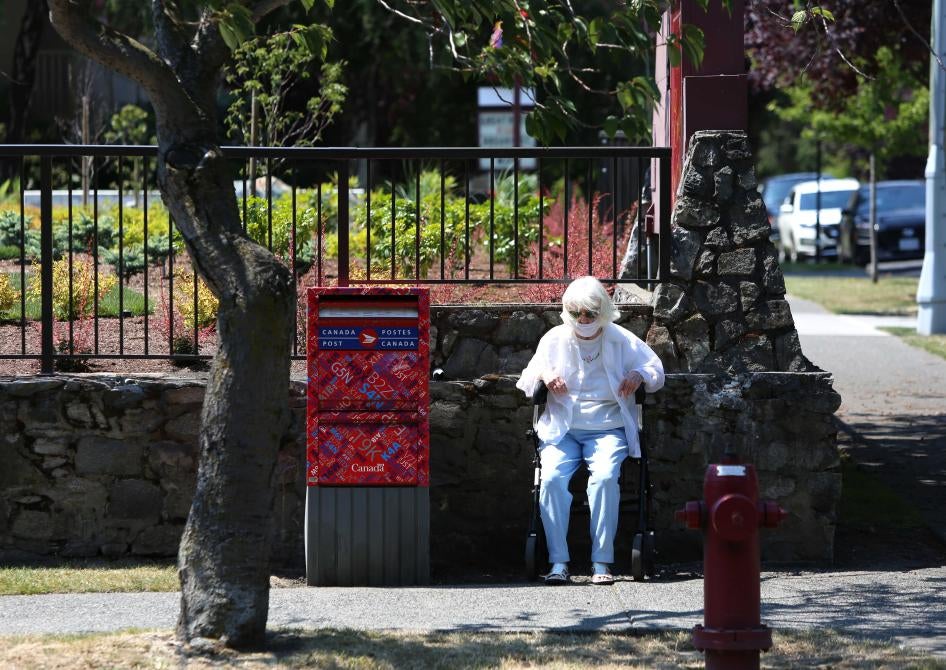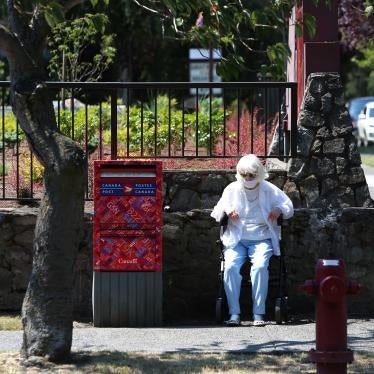As the one-year anniversary of a lethal heatwave in Western Canada approaches, the British Columbia and Canadian governments need to ensure that support is in place for those most at risk from climate change-exacerbated extreme heat.
Last year, Human Rights Watch documented how lack of access to cooling and targeted support contributed to preventable suffering and possibly the death of older people and people with disabilities. Ember, a 69-year-old woman with a physical disability from South Surrey, described the pain and fear she felt during the heatwave: “I have never been so sick in my entire life ... I couldn’t do anything.”
According to the British Columbia Coroners Service, nearly 600 people died due to extreme heat during the summer of 2021, and 91 percent of those who died during the heatwave’s peak were 60 or older. Information on how many had a disability is still lacking.
Worse is yet to come. Research warns that climate-related extreme heat is set to cause even more devastating harm in Canada, and parts of British Columbia are among the areas that will be hardest hit.
Canada’s federal and provincial governments have a shared human rights obligation to prevent foreseeable harm from climate change and ensure safety and protection during extreme weather events. How these governments prepare for, and respond to, extreme heat this summer could mean life or death for many.
The British Columbia government has yet to release its promised heat response framework, intended as a foundation for forthcoming extreme heat emergency planning. Targeted support for people with disabilities, older people, and other groups particularly at risk of heat-related illness and death should be included. Support for those who cannot afford to buy or operate cooling devices, and for whom access to public cooling centers is not feasible or medically advisable, is critical.
People with disabilities and older people should not have to wait for necessary assistance to uphold their human rights. As Gabrielle Peters, a disabled policy analyst who lives in poverty in a subsidized apartment in Vancouver, said, “There is a difference between facing the prospect of death because it is part of the reality of being human, and the prospect of death because you have been put in a situation where you should and could survive, but have been denied the tools and means to do so.”









